第48章 Fallacies
Right understanding consists in the discovery and adherence to truth,and that in the perception of the visible or probable agreement or disagreement of ideas as they are affirmed and denied one of another.From whence it is evident that the right use and conduct of the understanding,w hose business is purely truth and nothing else,is that the mind should be kept in a perfect indifference,not inclining to either side any further than evidence settles it by knowledge or the over-balance of probability gives it the turn of assent and belief;but yet it is very hard to meet with any discourse wherein one may not perceive the author not only maintain (for that is reasonable and fit),but inclined and biased to one side of the question With marks of a desire that should be true.
If it be asked me how authors who have such a bias and lean to it may be discovered,I answer,by observing how in their Writings or arguings they are often led by their inclinations to change the ideas of the question,either by changing the terms or by adding and joining others to them,whereby the ideas under consideration are so varied as to be more serviceable to their purpose and to be thereby brought to an easier and nearer agreement or more visible and remoter disagreement one with another.This is plain and direct sophistry;but I am far from thinking that,wherever it is found,it is made use of with design to deceive and mislead the readers.
It is visible that men's prejudices and inclinations by this way impose often upon themselves;and their affection for truth,under their prepossession in favor of one side,is the very thing that leads them from it.Inclination suggests and slides into their discourse favorable terms which introduce favorable ideas,till at last by this means that is concluded clear and evident,thus dressed up,which taken in its native state,by making use of none but the precise determined ideas,would find no admittance at all.
The putting these glosses on what they affirm,these (as they are thought)handsome,easy and graceful explications of what they are discoursing on,is so much the character of what is called and esteemed writing well,that it is very hard to think that authors will ever be persuaded to leave what serves so well to propagate their opinions and procure themselves credit in the world for a more jejune and dry way of writing,by keeping to the same terms precisely annexed to the same ideas,a sour and blunt stiffness tolerable in mathematicians only,who force their way and make truth prevail by irresistible demonstration.
But yet,if authors cannot be prevailed with to quit the looser,though more insinuating,ways of writing,if they will not think fit to keep close to truth and instruction by unvaried terms and plain unsophisticated arguments,yet it concerns readers not to be imposed on by fallacies and the prevailing ways of insinuation.To do this,the surest and most effectual remedy is to fix in the mind the clear and distinct ideas of the question stripped of words;and so likewise in the train of argumentation,to take up the author's ideas,neglecting his words,observing how they connect or separate those in the question.He that does this will be able to cast off all that is superfluous;he will see what is pertinent,what coherent,what is direct to,what slides by the question.This will readily show him all the foreign ideas in the discourse and where they were brought in;and though they perhaps dazzled the writer,yet he will perceive that they give no light nor strength to his reasonings.
This,though it be the shortest and easiest way of reading books with profit and keeping oneself from being misled by great names or plausible discourses,yet,it being hard and tedious to those who have not accustomed themselves to it,it is not to be expected that everyone (amongst those few who really pursue truth)should this way guard his understanding from being imposed on by the willful or at least undesigned sophistry which creeps into most of the books of argument.They that write against their conviction or that,next to them,are resolved to maintain the tenets of a party they are engaged in cannot be supposed to reject any arms that may help to defend their cause,and therefore such should be read with the greatest caution.And they who write for opinions they are sincerely persuaded of and believe to be true think they may so far allow themselves to indulge their laudable affection to truth as to permit their esteem of it to give it the best colors and set it off with the best expressions and dress they can,thereby to gain it the easiest entrance into the minds of their readers and fix it deepest there.
One of those being the state of mind we may justly suppose most writers to be in,it is fit their readers,who apply to them for instruction,should not lay by that caution which becomes a sincere pursuit of truth,and should make them always watchful against whatever might conceal or misrepresent it.If they have not the skill of representing to themselves the author's sense by pure ideas separated from sounds and thereby divested of the false lights and deceitful ornaments of speech,this yet they should do:they should keep the precise question steadily in their minds,carry it along Faith them through the whole discourse,and suffer not the least alteration in the terms either by addition,subtraction or substituting any other.This everyone can do who has a mind to it;and he that has not a mind to it,it is plain makes his understanding only the warehouse of other men's lumberÑImean false and unconcluding reasonings,rather than a repository of truth for his own use,which will prove substantial and stand him in stead when he has occasion for it.And whether such a one deals fairly by his own mind and conducts his own understanding right,I leave to his own understanding to judge.